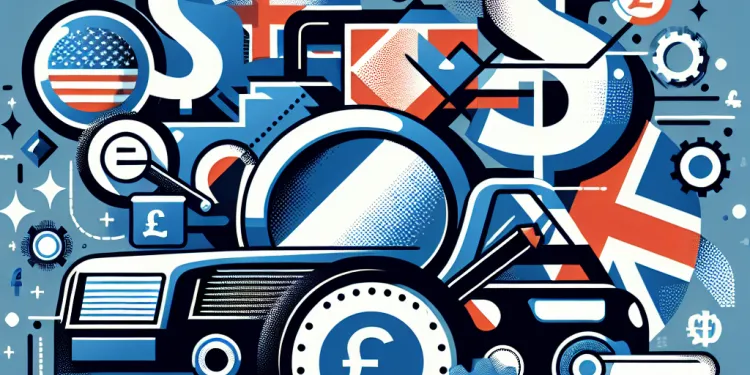
Find Help
More Items From Ergsy search
-

What should I look for in my car finance agreement?
Relevance: 100%
-

How does interest rate affect my car finance agreement?
Relevance: 93%
-
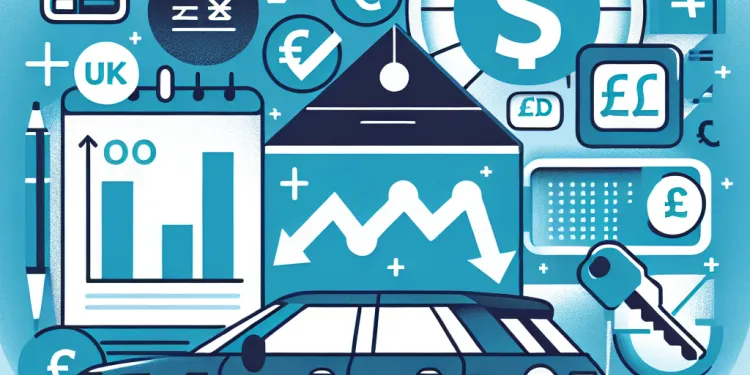
What does it mean to be mis-sold car finance?
Relevance: 80%
-

Can mis-sold car finance affect my credit score?
Relevance: 78%
-

How can I check if I was mis-sold car finance?
Relevance: 78%
-

Can I claim compensation if I was mis-sold car finance?
Relevance: 77%
-

Are all car finance products potentially subject to mis-selling?
Relevance: 77%
-
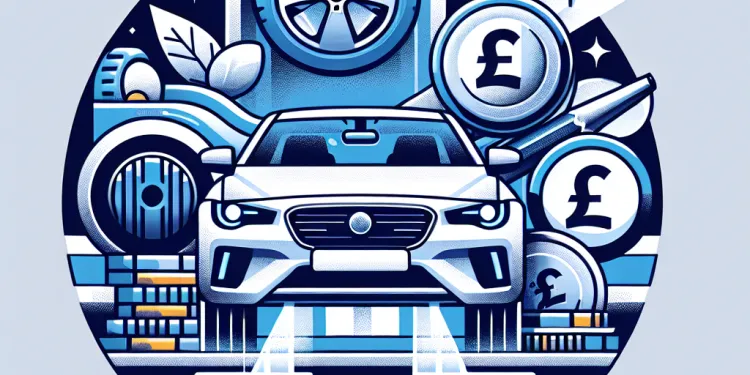
Can I modify a car I'm leasing or financing?
Relevance: 76%
-

How can I find out if I was mis-sold car finance?
Relevance: 74%
-
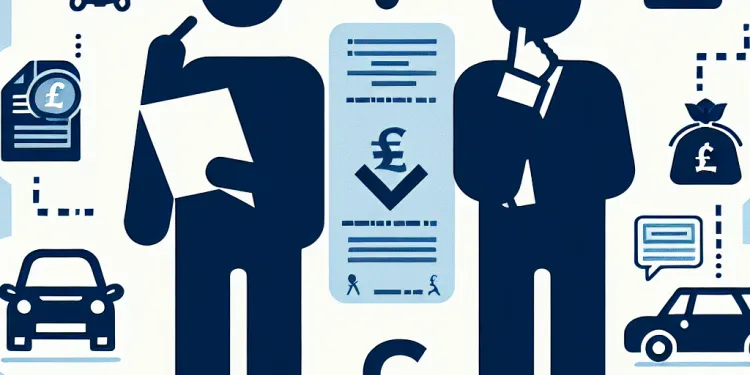
What are common signs of being mis-sold car finance?
Relevance: 74%
-

How does leasing compare financially to financing a car?
Relevance: 74%
-

What documents do I need to assess if I was mis-sold car finance?
Relevance: 74%
-

Why is understanding the terms of car finance important?
Relevance: 74%
-

Can a finance broker be liable for mis-selling car finance?
Relevance: 68%
-
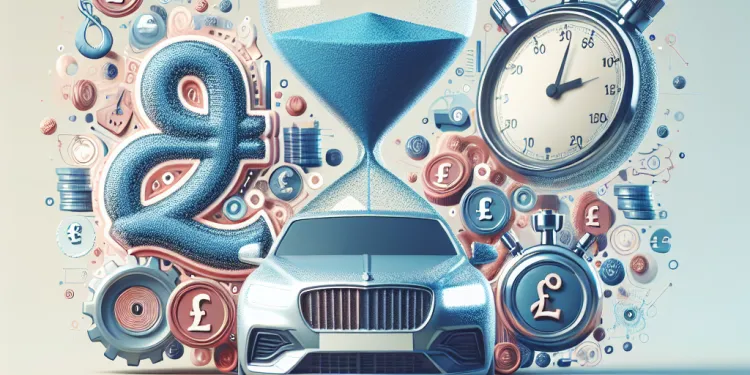
What is the time limit for making a complaint about mis-sold car finance?
Relevance: 66%
-
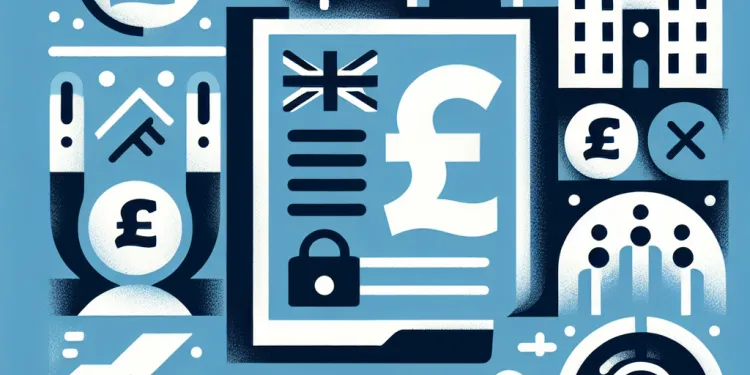
Are there specific eligibility criteria for PCP or HP agreements?
Relevance: 64%
-
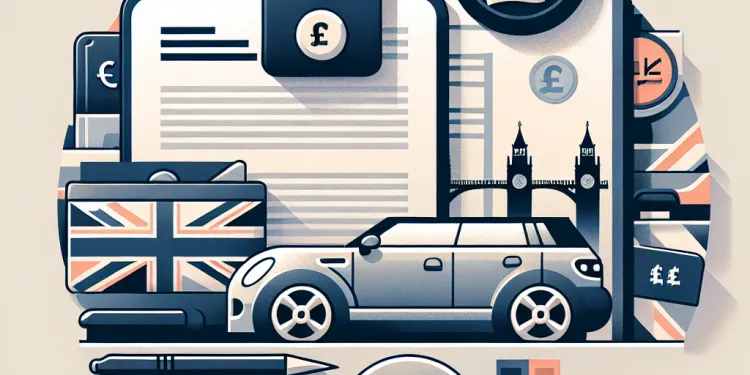
What's typically included in a car lease agreement in the UK?
Relevance: 60%
-
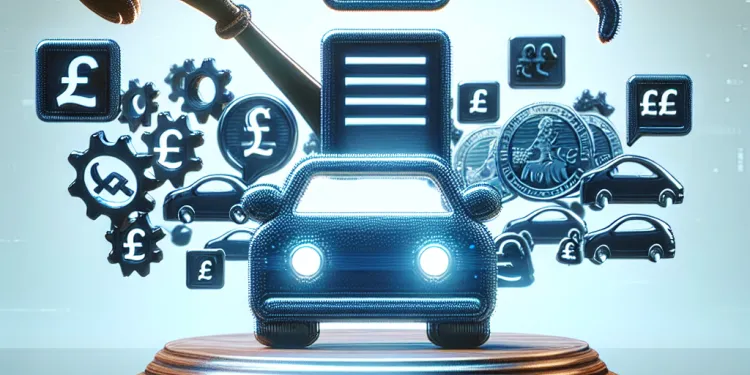
What should I do if my complaint about mis-sold car finance is rejected?
Relevance: 58%
-

What is the role of the Financial Conduct Authority (FCA) in car finance mis-selling?
Relevance: 56%
-
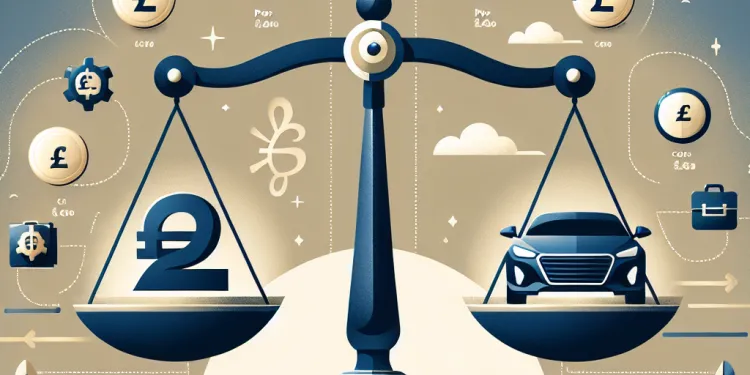
What are the pros and cons of leasing a car?
Relevance: 56%
-
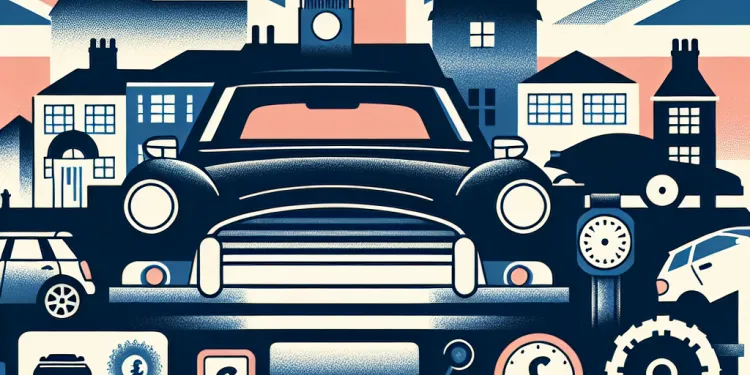
Can I make a complaint if I was mis-sold car finance?
Relevance: 55%
-
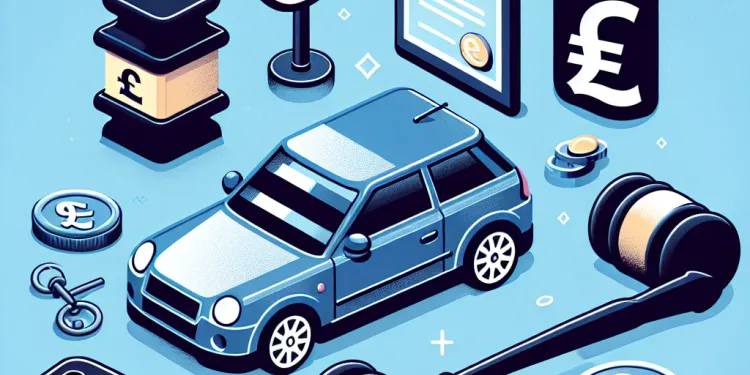
How do I record evidence for a mis-sold car finance claim?
Relevance: 52%
-

How to Buy a Car UK | Pros and Cons | PCP vs HP vs Leasing
Relevance: 52%
-
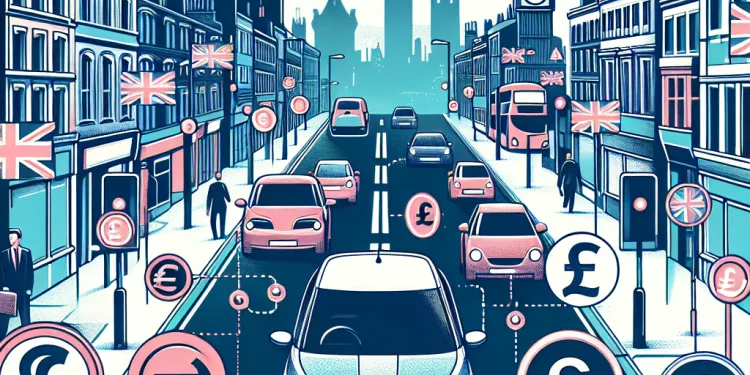
What does leasing a car entail in the UK?
Relevance: 51%
-

How long does the mis-sold car finance complaints process take?
Relevance: 51%
-
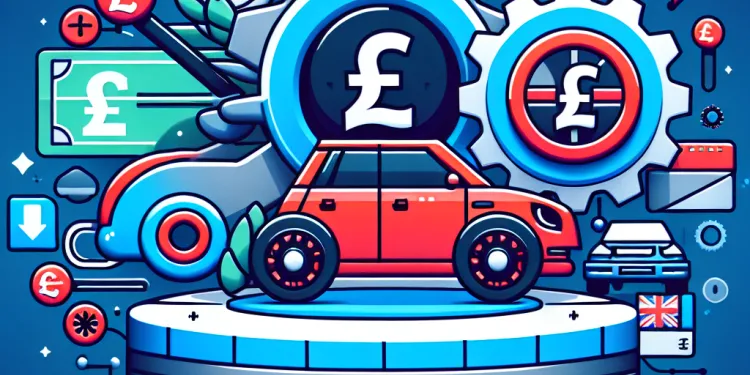
Are there specialists who can help with mis-sold car finance claims?
Relevance: 51%
-
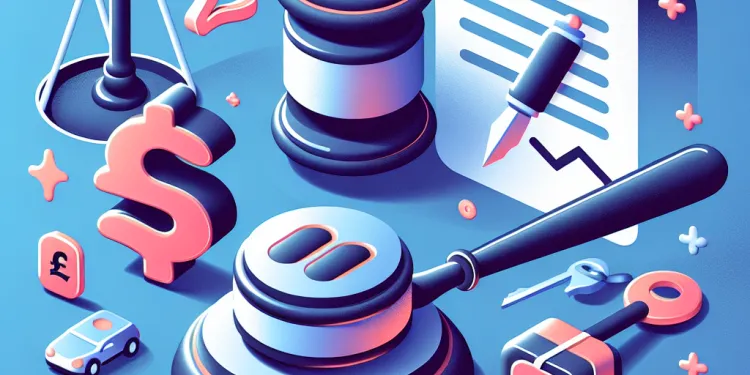
Who can I contact if I suspect I was mis-sold car finance?
Relevance: 51%
-

Leasing VS Buying a Car: Watch this before you buy a car and make the wrong choice!
Relevance: 47%
-
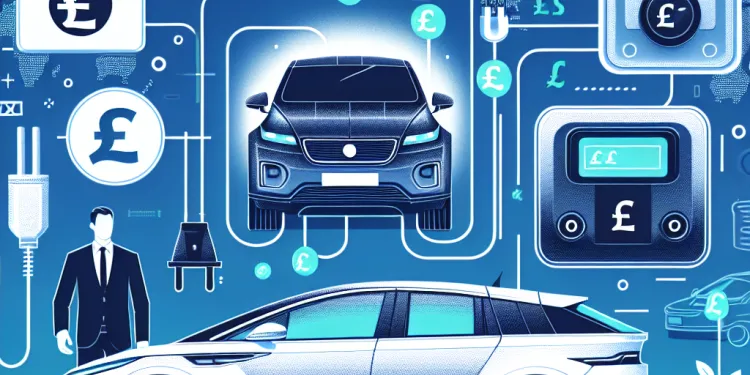
How do I apply for the Plug-in Car Grant?
Relevance: 46%
-
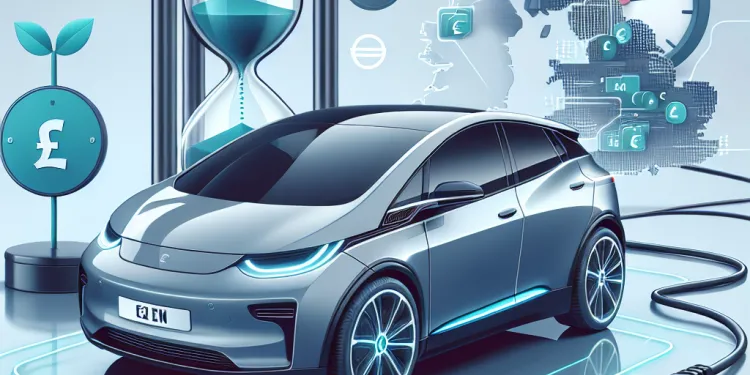
Is there a deadline for the Plug-in Car Grant?
Relevance: 45%
-
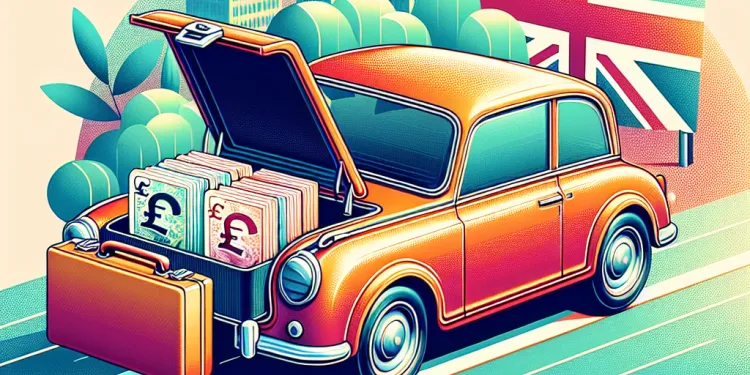
Does buying a car with cash have advantages?
Relevance: 44%
-
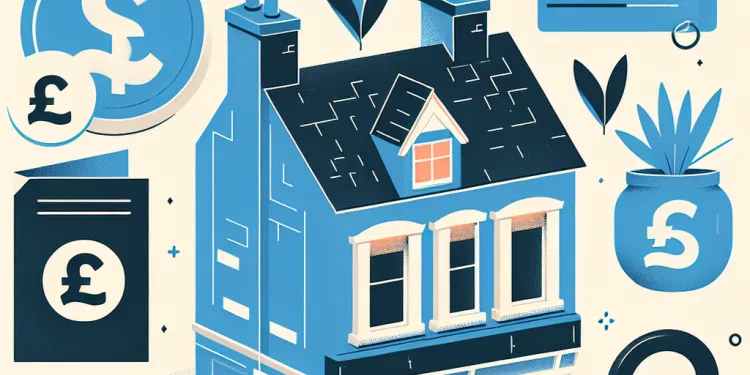
Can I end a lease agreement early?
Relevance: 44%
-
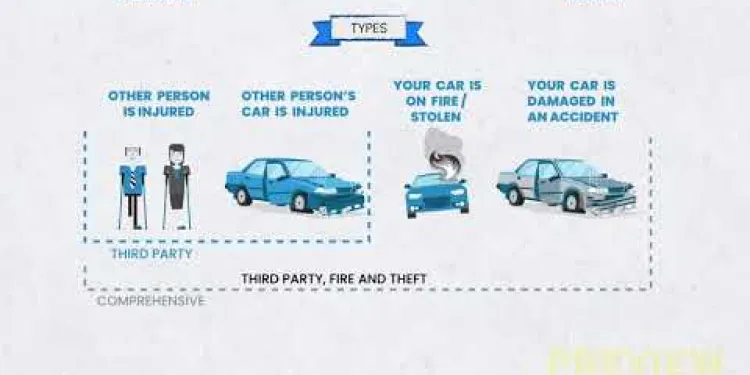
Explaining Car insurance in the UK??
Relevance: 44%
-
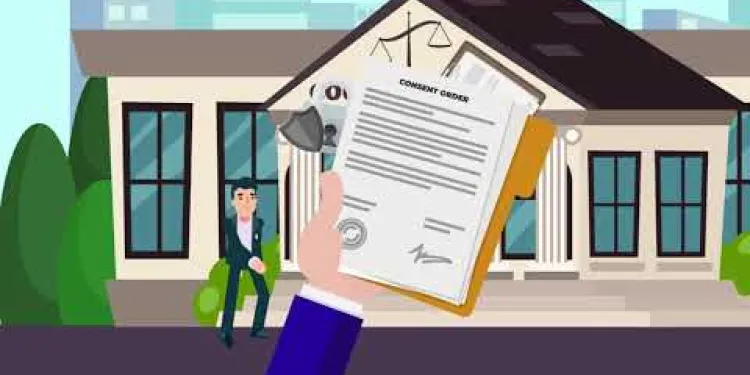
The 4 Steps to Agree a Financial Settlement on Divorce UK
Relevance: 44%
-
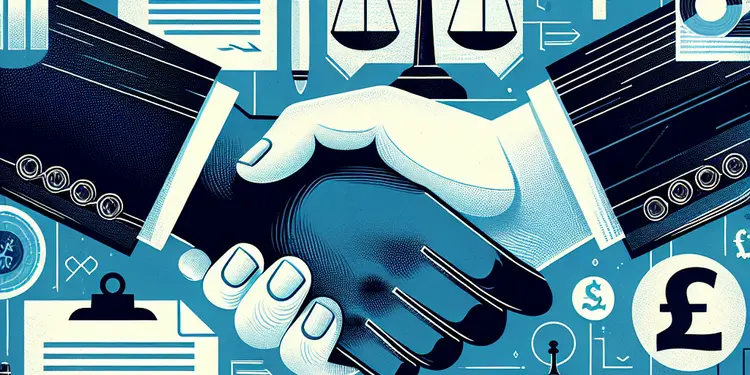
How does a buy-sell agreement help in resolving disputes?
Relevance: 44%
-
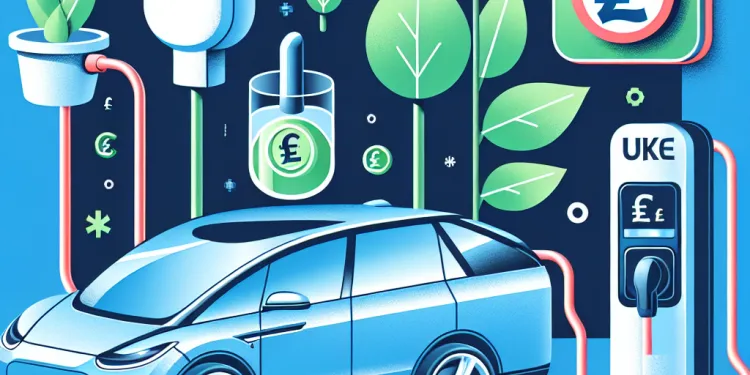
What is the UK Plug-in Car Grant?
Relevance: 43%
-
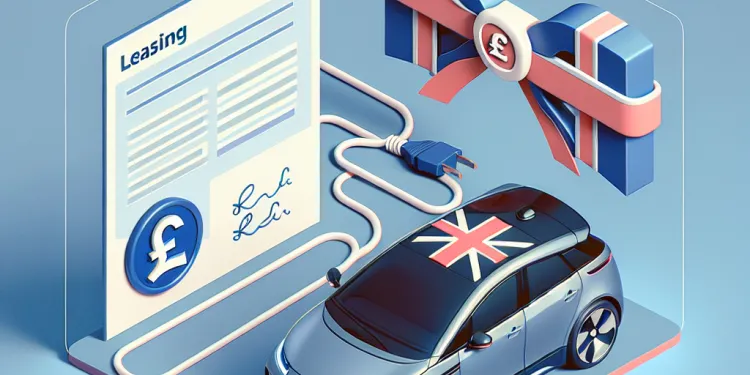
Is the Plug-in Car Grant available for leased vehicles?
Relevance: 42%
-
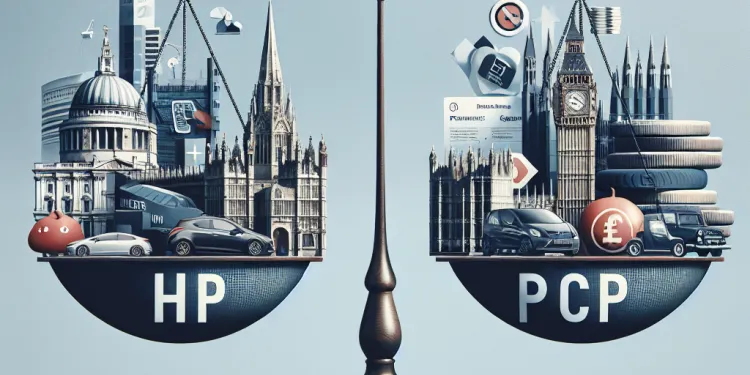
When would HP be more beneficial than PCP?
Relevance: 42%
-
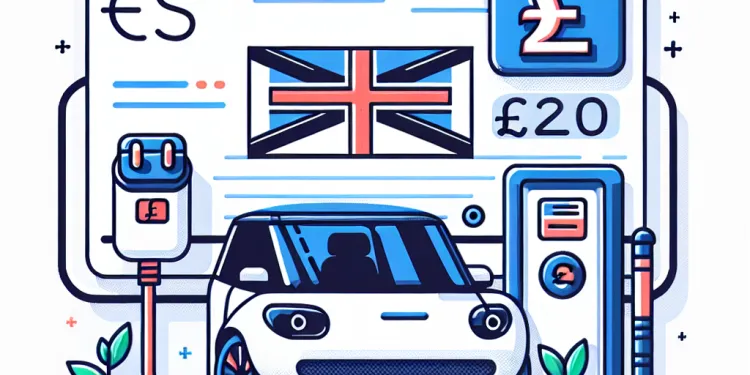
How do I find out if a specific car is eligible for the Plug-in Car Grant?
Relevance: 42%
-
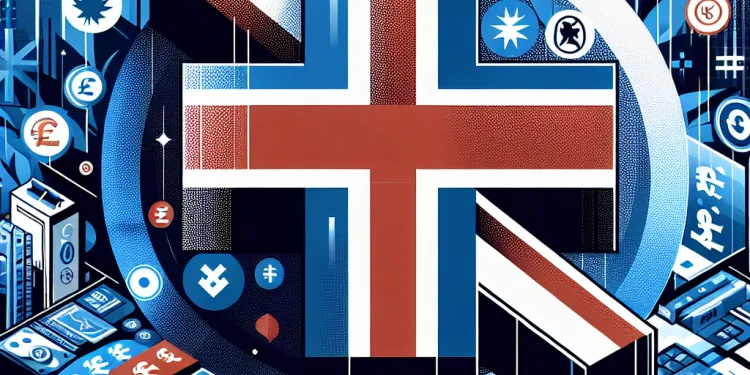
What are the main advantages of PCP over HP?
Relevance: 42%
Understanding the Total Cost of the Finance Agreement
When considering a car finance agreement in the UK, one of the first aspects to examine is the total cost of the agreement. This includes the interest rate (APR), any initial deposit required, administration fees, and the total amount repayable over the term of the agreement. It's critical to ensure that the monthly repayments are affordable within your budget without causing financial strain. Comparing multiple offers can help you identify competitive interest rates and terms that align with your financial situation.
Interest Rates and APR
The Annual Percentage Rate (APR) is a key component of your car finance agreement, as it represents the cost of borrowing expressed as a yearly rate. It's important to know whether the interest rate is fixed or variable, as this affects how your repayments may change over time. A fixed rate offers stability and predictability, whereas a variable rate could fluctuate based on market conditions. Comparing APR across different lenders can help you find the most affordable option for financing your car.
Types of Car Finance Options
In the UK, there are several types of car finance options, each with its own pros and cons. Personal Contract Purchase (PCP), Hire Purchase (HP), and Personal Loans are common options. With PCP, you have lower monthly payments but may have a larger balloon payment at the end of the term if you wish to own the car. HP spreads payments across the term with eventual ownership once the final payment is made. Personal loans provide overall ownership from the start, using the loan funds to buy the car outright. Understanding these options can help you choose the right agreement for your needs.
Early Repayment and Termination Clauses
It's important to understand the terms for early repayment or agreement termination. Some agreements may impose additional fees for early repayment, while others might offer flexibility. Knowing these details can prevent unexpected costs if you decide to pay off your agreement sooner or return the car before the term ends. Always check for any penalties or conditions associated with early repayment or ending the contract early.
Mileage Limits and Excess Charges
Particularly relevant for PCP agreements, mileage limits are a key detail to consider. Exceeding the agreed mileage can result in excess mileage charges. Understanding how these charges are calculated and whether they are reasonable is crucial. If your driving habits suggest you will exceed these limits, discuss this with the finance provider to see if an agreement can be reached to avoid high charges.
Insurance and Maintenance Costs
Some car finance agreements may include additional services such as maintenance packages or GAP insurance. While these can add to the convenience and peace of mind, they also contribute to the overall cost. Evaluate the benefits and necessity of these add-ons against their cost, and decide if they represent good value. Ensure you are not paying for unnecessary extras that inflate your monthly payments.
Understanding the Total Cost of the Finance Agreement
When you think about buying a car with a finance plan in the UK, it is important to know how much it will cost you. This includes the interest rate (APR), any money you need to pay first (deposit), fees for setting it up, and the total amount you will pay in the end. Make sure you can pay the monthly amount without trouble. Look at different offers to find a good deal that suits your money needs.
Interest Rates and APR
The Annual Percentage Rate (APR) shows how much borrowing costs each year. You should know if the rate is fixed (stays the same) or variable (can change). A fixed rate gives you certainty, while a variable rate might go up or down. Compare APRs from different lenders to find a good deal for your car loan.
Types of Car Finance Options
In the UK, there are different ways to finance a car. Common options include Personal Contract Purchase (PCP), Hire Purchase (HP), and Personal Loans. With PCP, monthly payments are smaller but you might pay more at the end if you want the car. With HP, you pay a bit each month and own the car when done. Personal loans let you buy the car right away and own it. Learn about each one to pick what’s best for you.
Early Repayment and Termination Clauses
It’s good to know the rules about paying off your finance deal early or if you want to stop the deal. Some plans charge extra if you pay early, while others are more flexible. Knowing these rules can stop surprises if you pay off early or return the car early. Check for any extra charges or rules about ending the deal.
Mileage Limits and Excess Charges
If you have a PCP deal, check the mileage limits. If you drive more than allowed, you might have to pay extra. Make sure the charges for going over the limit are fair. Talk to your finance provider if you think you will drive more to avoid high costs.
Insurance and Maintenance Costs
Some car finance deals include extra services like maintenance or GAP insurance. These can be helpful but also add to the cost. Think about if these extras are worth the money. Make sure you are not paying for something you don’t need that makes your monthly payments higher.
Frequently Asked Questions
What are the total costs involved in the car finance agreement?
Look for details on the total loan amount, interest rates, fees, and any additional charges to understand the full cost of your finance agreement.
What is the interest rate on the auto loan?
Check whether the interest rate is fixed or variable and how it will impact your monthly payments over the term of the loan.
Is there an early repayment penalty?
Find out if there are penalties for paying off your loan early, as this can affect your flexibility in managing the loan.
What are the term length options available?
Determine the length of the loan and how it affects your monthly payments and overall interest costs.
Is there a down payment required?
Check if a down payment is required, how much it is, and how it influences the terms of your loan.
Are there any fees I should be aware of?
Look for information on administrative fees, origination fees, and any other charges that may apply.
What is the total amount I will pay by the end of the loan?
Ensure you know the complete amount you will have paid after all interest and fees by the end of your loan term.
Can I make additional payments?
Check if you can make extra payments to reduce the principal faster and save on interest without penalties.
What happens if I miss a payment?
Understand the lender's policy on missed payments, including any penalties, fees, and long-term effects on your credit score.
Does the agreement include voluntary repossession terms?
Look for any clauses regarding voluntary repossession and under what circumstances this would be applicable.
Is the loan pre-computed or simple interest?
Determine whether the interest is calculated on a simple or pre-computed basis, as this affects how payments are applied.
Are there any specific insurance requirements?
Review if there are specific insurance requirements attached to the finance agreement, such as GAP insurance.
Will the car be used as collateral?
Check if the vehicle is considered collateral for the loan and understand the implications if you default.
What is the annual percentage rate (APR)?
Find out the APR, which includes the interest rate and any other fees, to compare the overall cost of the loan.
Is the agreement transferable if I sell the car?
Check if the loan can be transferred to another party if you decide to sell the car during the loan period.
Are there mileage limits or restrictions?
Some car finance agreements, particularly leases, may have mileage restrictions, so check for these limitations.
What is the payment schedule?
Review the payment schedule to understand when payments are due and plan your budget accordingly.
Are there any balloon payments at the end of the term?
Check if there is a large final payment, known as a balloon payment, due at the end of the loan term.
Does the agreement include a maintenance package?
See if there are any maintenance or service packages included in the finance agreement.
How will changes in my financial situation affect the loan?
Understand how the agreement addresses changes in your financial status, such as loss of income, and what options are available.
How much will the car loan cost in total?
Let's make it simple to understand!
- Think about the price of the car. That's how much the car costs.
- Add any extra fees. These are small costs added when you buy the car.
- If you borrow money, you pay interest. Interest is a bit of money you pay because you borrowed money.
- Adding all these together will give you the total cost. This is how much the car will cost in total.
You can use a calculator to help you add up all these costs!
Check how much the loan is for. Look at the interest rates. Check for any fees or extra charges. This will help you know how much the loan will cost you.
Tip: It can help to use a calculator to add up all the costs.
What is the interest rate on the car loan?
The interest rate is how much extra money you pay when you borrow money to buy a car.
Find out if the interest rate will stay the same or change. This will help you know how much you need to pay each month for the loan.
Do I have to pay extra if I pay back early?
Check if you will get a penalty for paying your loan early. This is important because it might affect how you handle your loan.
How long can I choose something for?
Figure out how long you will take to pay back the loan. This will change how much you pay each month and how much extra money (interest) you pay in the end.
Do you need to pay some money first?
Find out if you need to pay money at the start, called a down payment. Check how much money you need to pay and how it changes your loan deal.
Do I need to pay any money?
Check for extra costs. These could be admin fees, start-up fees, or any other charges you might have to pay.
How much money will I pay back for the loan?
This means the full amount of money you give back by the end of the loan.
Tools to help you:
- Use a calculator to add up the payments.
- Ask someone to help you understand the words.
Make sure you know how much money you will pay in total, including all the extra costs like interest and fees, by the time you finish paying off your loan.
Can I pay more money?
Ask if you can pay extra money to make the loan smaller. This can help you pay less interest in the end. Make sure you won't get in trouble for paying extra.
What happens if I miss a payment?
If you forget to pay, here is what can happen:
- You might get a letter or call telling you to pay.
- You could have to pay extra money.
- Your service might stop until you pay.
Tips to help remember payments:
- Use a calendar to mark payment days.
- Set reminders on your phone.
- Ask someone you trust to remind you.
Find out what the lender does if you miss a payment. This includes any extra money you might have to pay, like penalties or fees, and how it could make your credit score go down over time.
Does the plan include giving back your stuff if you cannot pay?
Check if there are any rules about giving back something on your own and when you would need to do this.
What kind of interest is on the loan: pre-computed or simple?
When you borrow money, you have to pay back the loan with extra money called interest.
There are two types of interest:
- Pre-computed Interest: The interest is calculated at the start. You pay the same amount each time.
- Simple Interest: The interest is calculated on the amount you still owe, and it can be different each time.
If you need help, you can use a calculator to see how much you will pay. Talking to someone like a bank helper can also make it clearer for you.
Check if the interest is worked out in a simple way or a pre-computed way. This changes how you make payments.
Do I need special insurance?
Check with your insurance company to see if you need special cover. They can help you understand what you need.
It might be useful to have a checklist to keep track of what is required. You can also ask a friend or family member to help explain.
Check if you need to have special insurance with your loan, like GAP insurance.
Is the car being used to borrow money?
Find out if the car is used as a promise for the loan. Learn what happens if you can’t pay back the loan.
What is APR?
APR means annual percentage rate. It shows how much it costs to borrow money for one year.
APR tells you how much extra money you will pay back when you borrow money.
If you are not sure what APR means, you can ask a parent or a teacher. You can also use tools like a calculator to help you understand better.
Find out the APR. This tells you how much you have to pay for the loan. It includes the interest rate and other fees. Use the APR to see which loan is the cheapest.
Can I give the agreement to someone else if I sell my car?
If you sell your car, can the new owner use the same agreement?
Ask someone to help you read and understand the agreement. This could be a family member or a friend. You can also use tools that read text out loud for you.
Find out if you can let someone else take over your loan if you want to sell the car before you finish paying off the loan.
Can you drive as much as you want?
When you get a car with a lease or another type of finance, there might be rules about how far you can drive. Make sure you look at these rules.
When do I need to pay?
You can use a calendar to mark the payment days or set reminders on your phone to help you remember.
Look at the payment plan to see when you need to pay. This will help you plan your money.
Do you have to pay a big amount at the end?
Sometimes, you might need to pay a large amount of money when a plan ends. This is called a "balloon payment".
If you are not sure, you can ask someone to help you understand. You can also use a calculator to see all the payments you need to make.
See if you have to make a big payment at the end of the loan. This is called a balloon payment.
Does the deal come with a care plan?
This means: Do you get help to keep things working well?
Check if the finance plan includes any help with fixing or servicing the car.
What happens to my loan if my money changes?
Find out how the agreement can help if your money situation changes, like if you lose your job. See what choices you have then.
Useful Links
Have you found an error, or do you have a link or some information you would like to share? Please let us know using the form below.
-->
This website offers general information and is not a substitute for professional advice.
Always seek guidance from qualified professionals.
If you have any medical concerns or need urgent help, contact a healthcare professional or emergency services immediately.
Some of this content was generated with AI assistance. We’ve done our best to keep it accurate, helpful, and human-friendly.
- Ergsy carfully checks the information in the videos we provide here.
- Videos shown by Youtube after a video has completed, have NOT been reviewed by ERGSY.
- To view, click the arrow in centre of video.
- Most of the videos you find here will have subtitles and/or closed captions available.
- You may need to turn these on, and choose your preferred language.
- Go to the video you'd like to watch.
- If closed captions (CC) are available, settings will be visible on the bottom right of the video player.
- To turn on Captions, click settings .
- To turn off Captions, click settings again.
More Items From Ergsy search
-

What should I look for in my car finance agreement?
Relevance: 100%
-

How does interest rate affect my car finance agreement?
Relevance: 93%
-

What does it mean to be mis-sold car finance?
Relevance: 80%
-

Can mis-sold car finance affect my credit score?
Relevance: 78%
-

How can I check if I was mis-sold car finance?
Relevance: 78%
-

Can I claim compensation if I was mis-sold car finance?
Relevance: 77%
-

Are all car finance products potentially subject to mis-selling?
Relevance: 77%
-

Can I modify a car I'm leasing or financing?
Relevance: 76%
-

How can I find out if I was mis-sold car finance?
Relevance: 74%
-

What are common signs of being mis-sold car finance?
Relevance: 74%
-

How does leasing compare financially to financing a car?
Relevance: 74%
-

What documents do I need to assess if I was mis-sold car finance?
Relevance: 74%
-

Why is understanding the terms of car finance important?
Relevance: 74%
-

Can a finance broker be liable for mis-selling car finance?
Relevance: 68%
-

What is the time limit for making a complaint about mis-sold car finance?
Relevance: 66%
-

Are there specific eligibility criteria for PCP or HP agreements?
Relevance: 64%
-

What's typically included in a car lease agreement in the UK?
Relevance: 60%
-

What should I do if my complaint about mis-sold car finance is rejected?
Relevance: 58%
-

What is the role of the Financial Conduct Authority (FCA) in car finance mis-selling?
Relevance: 56%
-

What are the pros and cons of leasing a car?
Relevance: 56%
-

Can I make a complaint if I was mis-sold car finance?
Relevance: 55%
-

How do I record evidence for a mis-sold car finance claim?
Relevance: 52%
-

How to Buy a Car UK | Pros and Cons | PCP vs HP vs Leasing
Relevance: 52%
-

What does leasing a car entail in the UK?
Relevance: 51%
-

How long does the mis-sold car finance complaints process take?
Relevance: 51%
-

Are there specialists who can help with mis-sold car finance claims?
Relevance: 51%
-

Who can I contact if I suspect I was mis-sold car finance?
Relevance: 51%
-

Leasing VS Buying a Car: Watch this before you buy a car and make the wrong choice!
Relevance: 47%
-

How do I apply for the Plug-in Car Grant?
Relevance: 46%
-

Is there a deadline for the Plug-in Car Grant?
Relevance: 45%
-

Does buying a car with cash have advantages?
Relevance: 44%
-

Can I end a lease agreement early?
Relevance: 44%
-

Explaining Car insurance in the UK??
Relevance: 44%
-

The 4 Steps to Agree a Financial Settlement on Divorce UK
Relevance: 44%
-

How does a buy-sell agreement help in resolving disputes?
Relevance: 44%
-

What is the UK Plug-in Car Grant?
Relevance: 43%
-

Is the Plug-in Car Grant available for leased vehicles?
Relevance: 42%
-

When would HP be more beneficial than PCP?
Relevance: 42%
-

How do I find out if a specific car is eligible for the Plug-in Car Grant?
Relevance: 42%
-

What are the main advantages of PCP over HP?
Relevance: 42%


